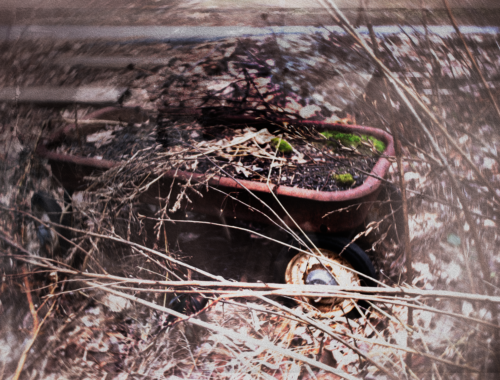
What Are You Saying?
This seems like a strange choice for a simile: “… as welcomed as child sacrifice.” I came across it in a book I’m reading, and it gets thoughts swimming in my head, thoughts like, Who thinks this way? You want to be flippant and fun, so you glom onto the reality of child sacrifice? Nice.
I don’t want to name names (book or author), so I shan’t, but I will go back and find the entire statement, which is part of a synopsis of a novel. (The “she” in the following refers to the author of the novel being described.): “Elements of her mother’s Puritanical side of the family probably influenced her depiction of two pious, unmarried sisters whose falling in love was as welcomed as child sacrifice.”
The simile bothers me. If it didn’t, would I even bother to bring it up? What’s more, it is not the first thing in this book of essays that has made me come up short, but I question myself and my reactions: Come on, Cheryl, you’re looking to find fault. You’re biased. You need to open your mind to the words on the page and let those prejudices go.
Believe it or not, I once met the author. I was working as a newspaper reporter and was covering a writing conference this fellow was teaching at. Back then, I was newly married, easily in awe, and tended to see the world in black and white. My, how I’ve changed. Back then, I wouldn’t have been able to identify the truth if it came up and slapped me in the face. Once the stars cleared from my vision, I’d have already been at work creating the narrative that would explain away the ugliness that hurt too much to acknowledge as real.
It’s called cognitive dissonance, folks, and mine is all gone. I could write a very long, very detailed book about my recent (within just the last year) discoveries about how the world really works, but it’s all out there already, and I’d likely get too depressed in the process.
I guess what gets me the most is that all the evidence has been there in front of me all along, but not just in a nebulous sort of “well, yeah, anyone with eyes to see can’t miss it” kind of way. I mean: it has been in front of my very eyes, shown to me (usually in books and movies—thank you, God—not in real life). One instance that stands out took place a year or two before I met the writer of the essays I referred to up there. That’s when I worked at a bookstore and had to read a book I never would have taken off the shelf so I could interview the author for the article I needed to write for the store’s newsletter. After being frightened out of my wits by what I found on the pages of that novel, I soothed my soul with a reminder that “it’s just fiction.” Now I understand the difference between facts and truth. Now I know that truth is more likely to be found in the pages of a novel, not in the factual evidence presented in books billed as “nonfiction.”
There are more things in heaven and earth, Horatio, / Than are dreamt of in your philosophy. Indeed, and as far as earth is concerned, we’ll never understand all those things. I am perfectly fine with that. It’s the people who think they’ve got it all figured out that make me crazy. In fact, Barbara Ward’s words to that effect strike me as so salient, they show up beneath my name on every email I send out: “Men do not learn when they believe they already know.”
So, there you have it: much of what is taking up residence in my mind this morning (shortly before noon). Oh, and in case you’re wondering about that frightening novel I had to read prior to the interview: it was about child sacrifice.




